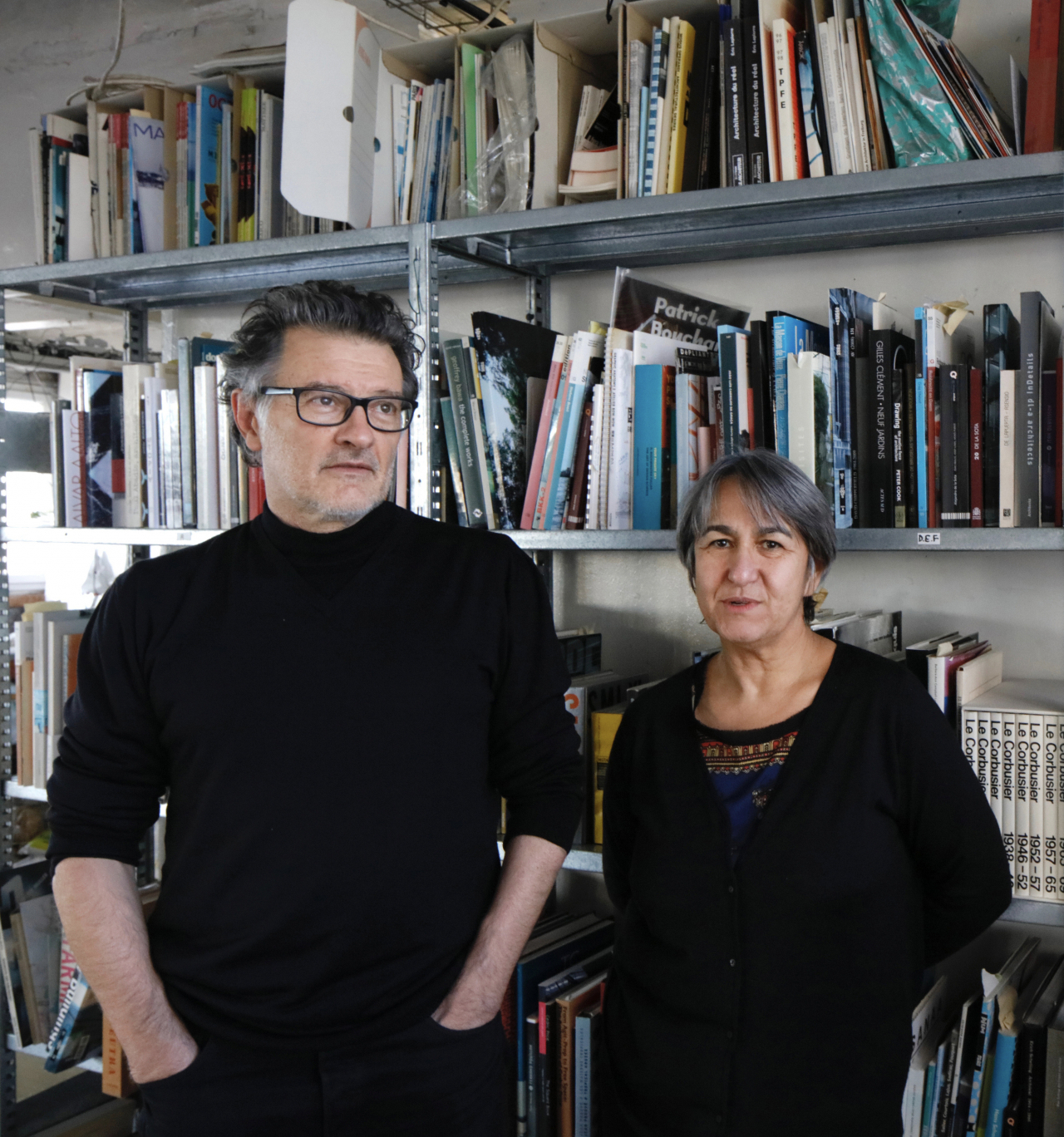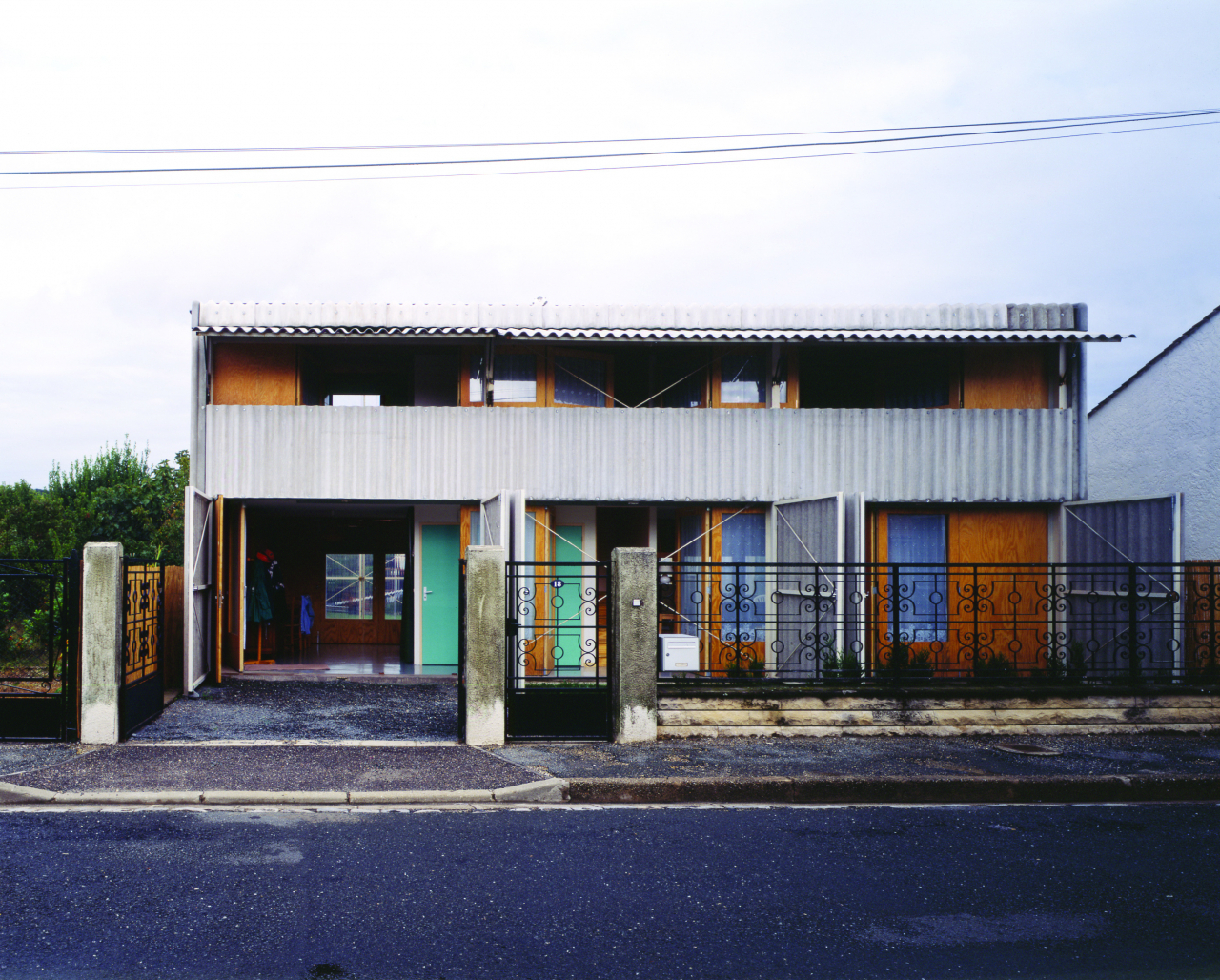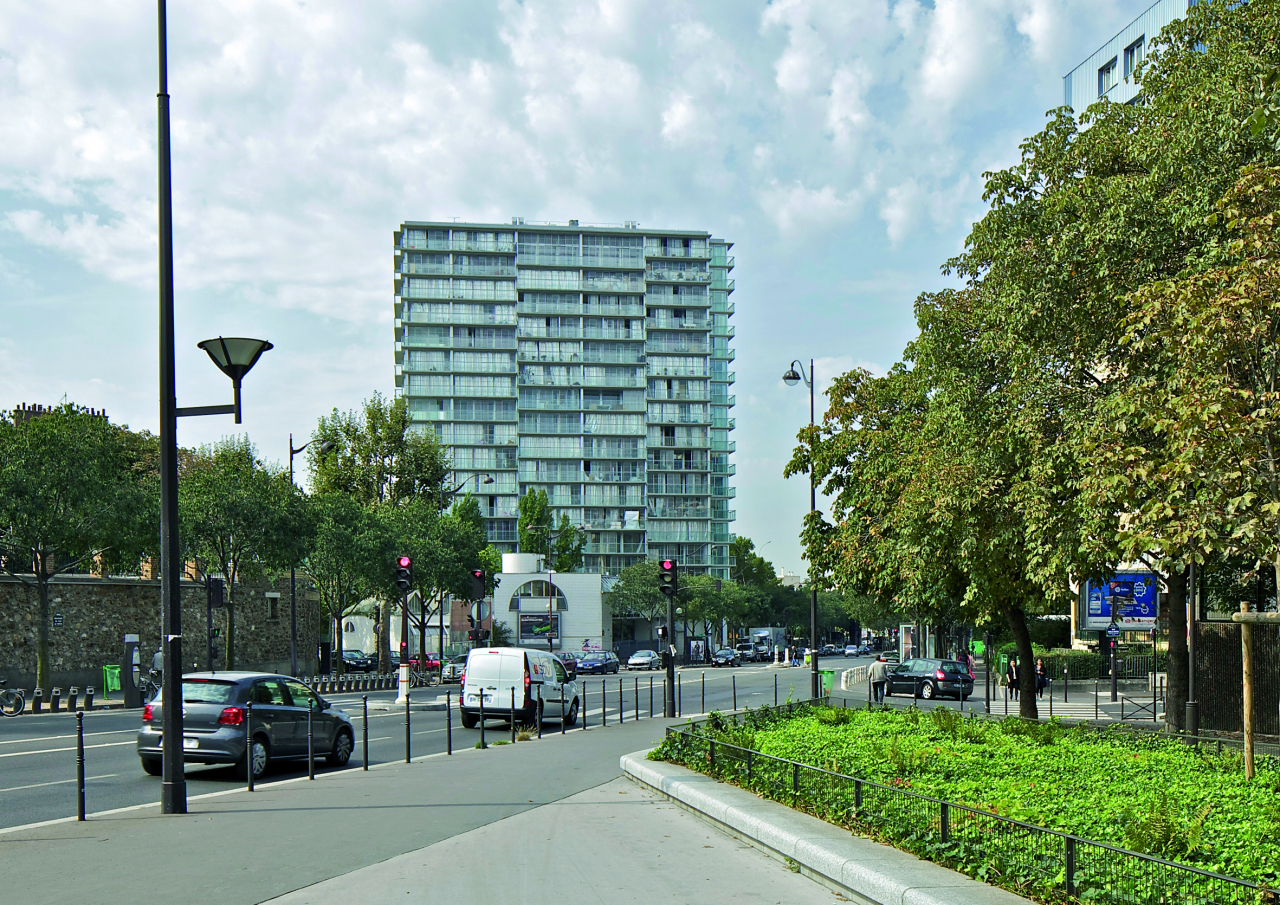 |
Anne Lacaton and Jean Philippe Vassal (Courtesy of Philippe Ruault) |
One may raise their eyebrows hearing the philosophy of the French architects Anne Lacaton and Jean Philippe Vassal whose practices are opposed to demolishing buildings to build new ones.
The Pritzker-winning architects’ approach is particularly unusual in Korean society where the wholesale reconstruction of apartment complexes to be taller, newer and more luxurious is a common and positively regarded way to raise home and property values.
“We do not think it is necessary to demolish and start from scratch to add value. Density and quality can also be achieved by transforming what already exists. That is what we are always trying to do,” said the architect duo in a written interview with The Korea Herald.
“There are many very positive aspects to this approach. Contrary to popular belief, redesigning, extending and updating is not more expensive, it is in many ways more interesting and allows us to solve many problems while adding new qualities,” the architects said.
The more than 30 private and social housing projects the architects have completed are all part of the same philosophy – “use existing buildings as a starting point to extend their life rather than demolish them.”
 |
Latapie House (Courtesy of Philippe Ruault) |
“The housing projects we carried out at the beginning of our practice are still very important, like the Latapie house (1993), the Cité Manifeste in Mulhouse (2005) and the house in the forest at Cap Ferret (1998),” they said.
Their 17-story and 96-unit social housing project “Tour Bois le Pretre” is another well-known project that increased the early 1960s building’s interior square footage of every unity through the removal of the original concrete facade.
“There is a very large stock of social housing in France, particularly that built since the 1950s, and public social housing in France has always been a place of innovation in housing and the production of good housing,” they said.
The architects won the Pritzker Prize, the most prestigious award in the architecture field, in 2021.
 |
La tour bois le prêtre (Courtesy of Philippe Ruault) |
When asked how they came to adhere to the notion of “never demolish,” the architects said it was a few decades ago when demolition began to be considered and implemented for the large modern housing estates built in the 1960s and 1970s.
“This solution immediately seemed absurd to us, and the worst solution, because these buildings were not old, nor had they reached the end of their life cycle,” they said. “All the cases we have studied have shown that transformation is always possible."
“Demolition is a waste, both socially and economically. A lot of people live in these buildings, and demolition means a loss of housing at a critical time when there isn't enough of it. In economic terms, the cost of demolition and rebuilding is very high. It also puts residents in a vulnerable position, as they have to leave their homes and often move to another neighborhood or town,” they added.
For Lacaton and Vassal, the duty of architects today lies in understating what society’s questions and needs are in terms of architecture, the environment and the city.
“As architects, an independent profession, we can find the freedom to be a force for change and to find creative and appropriate solutions to current challenges and expectations,” they said.
The pair is working on several projects that take existing situations and transform them, such as expanding a theater in Hamburg, Germany, that was temporarily installed 40 years ago in a huge factory but is still there as an internationally renowned theater. The aim is to modernize the building and, in particular, to reduce energy consumption while also updating all the stage technology.
Lacaton and Vassal will speak at the Herald Design Forum 2024 scheduled to take place Oct. 8 at Sevit Island in Seoul under the theme of “Inspiration, Limitless?”




![[Exclusive] Hyundai Mobis eyes closer ties with BYD](http://res.heraldm.com/phpwas/restmb_idxmake.php?idx=644&simg=/content/image/2024/11/25/20241125050044_0.jpg)
![[Herald Review] 'Gangnam B-Side' combines social realism with masterful suspense, performance](http://res.heraldm.com/phpwas/restmb_idxmake.php?idx=644&simg=/content/image/2024/11/25/20241125050072_0.jpg)

